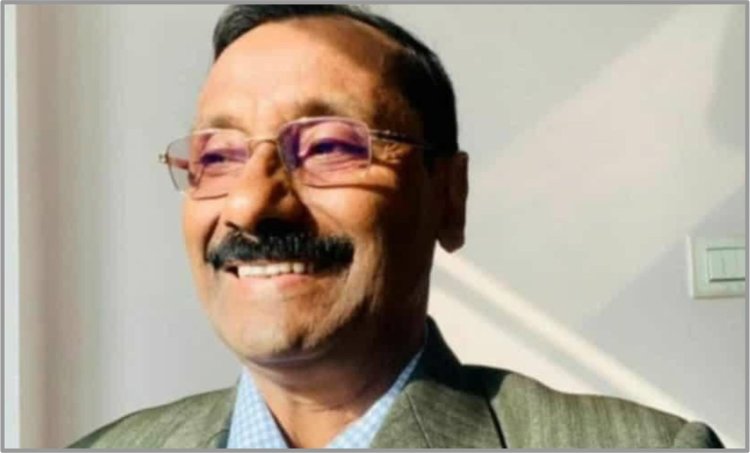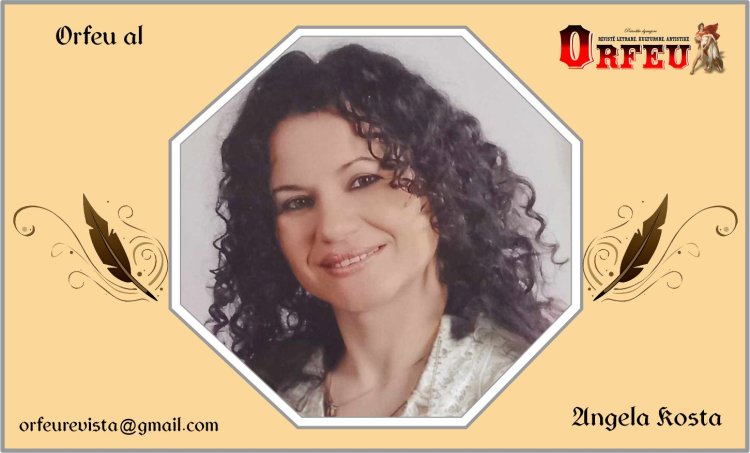Love on Thames
By Dr. Ratan Bhattacharjee
The news arrived like a whisper across continents. Deepak stared at the email, its words glowing against the midnight blue of his laptop screen: “We are pleased to offer you the research fellowship at King’s College London.” He blinked twice, unsure if the moment was real. The Thames, once a distant dream, now beckoned with scholarly promise and something far more personal—love.
Deepika was in Paris when the message reached her. She had just wrapped up a curatorial session at the Musée d'Orsay, her thoughts still lingering on the interplay of light and shadow in South Asian cinema. Her phone buzzed. She read Deepak’s message, and a smile curved her lips. But her heart didn’t leap to London or Paris—it drifted back to Purulia.
It was in that remote village of Bengal, nestled between red soil and tribal rhythms, that their story had begun. Not in the grandeur of European cities, but in the quiet corners of Anuparna’s first film set. Anuparna, the girl from Purulia who had just stunned the world with her Venice Film Festival win, had unknowingly set the stage for a love story that would span continents.
Deepak was then a literature student from Santiniketan, assisting with script translations and cultural references. Deepika, a design intern from Kolkata, was tasked with costume coordination. Between reels and rehearsals, they found themselves drawn to each other—not with dramatic declarations, but with shared silences, stolen glances, and the occasional exchange of poetry.
One afternoon, under the shade of a sal tree, Deepak had recited Tagore’s lines to her:
"Tumi robe nirobe, hridoye momo..."
You will remain silent, in the depths of my heart.
Deepika had smiled, not replying, but her eyes had glistened with something unspoken. That moment, like a pressed flower in a book, remained etched in both their memories.
Years passed. Life scattered them like autumn leaves. Deepika pursued art history in Paris, immersing herself in galleries and symposiums. Deepak buried himself in research, his papers on postcolonial literature gaining quiet recognition. They kept in touch—sporadic emails, occasional calls, and the rare postcard. But the river of memory kept flowing, and every bend led back to Purulia.
Now, London awaited.
Deepak arrived in the city with a suitcase full of books and a heart full of anticipation. The Thames greeted him with its timeless grace, winding through the city like a poem. He walked its banks often, imagining Deepika beside him, her laughter mingling with the breeze.
Meanwhile, Deepika stood at the Gare du Nord, ticket in hand, heart racing. She had decided—without telling Deepak—that she would surprise him. The Eurostar ride felt like a journey through time as much as space. She remembered their last meeting, years ago, when Deepak had gifted her a handmade notebook filled with Bengali verses and sketches of rivers.
When she arrived at King’s Cross, the city felt both foreign and familiar. She navigated her way to the college, asking for Deepak at the reception. The attendant smiled, pointing toward the library.
There he was—head bowed over a pile of books, lost in thought. She stood silently, watching him. The years had added a quiet maturity to his face, but the gentle intensity in his eyes remained unchanged.
“Deepak,” she whispered.
He looked up, startled. For a moment, he didn’t speak. Then, slowly, a smile spread across his face, and he stood, walking toward her as if afraid she might vanish.
“You came,” he said, voice trembling.
“I had to,” she replied. “The Thames was waiting.”
They walked together that evening, the river shimmering under the city lights. Boats glided past, and the bridges stood like sentinels of history. Deepak spoke of his research, of colonial narratives and diasporic identities. Deepika shared stories of her gallery work, of how she had curated an exhibit on Anuparna’s films, now celebrated across Europe.
They paused near Waterloo Bridge, watching the water ripple. Deepika turned to him. “Do you remember Purulia?”
“I never forgot,” he said. “That sal tree. That poem.”
She reached into her bag and pulled out the notebook he had given her. It was worn, its pages yellowed, but intact. “I carried this through Paris,” she said. “It reminded me of home. Of you.”
He took the notebook gently, as if holding a piece of his own soul. “I wrote those lines hoping you’d read them someday.”
“I read them every night,” she whispered.
The Thames flowed beside them, a witness to their reunion. It wasn’t just a river—it was a metaphor, a memory, a mirror. Their love, born in the red soil of Bengal, nurtured across letters and longing, had finally found its home on its banks.
In the weeks that followed, London became their canvas. They explored bookstores in Bloomsbury, attended lectures at the British Library, and spent quiet afternoons sketching riverside scenes. Deepak introduced Deepika to his professors, who admired her insights on visual storytelling. Deepika, in turn, invited Deepak to her Paris exhibit, where his poetry was displayed alongside cinematic stills.
One evening, as autumn leaves danced in the wind, Deepak took Deepika to a small café near Southbank. Over chai and scones, he pulled out a folded paper.
“I’ve written something,” he said. “It’s not academic. It’s...us.”
She unfolded the paper. It was a poem:
*"From Purulia’s dust to Thames’s tide,
We walked through silence, side by side.
Across letters, across years,
Through longing, laughter, and quiet tears.
Now here we stand, no need to roam—
The river has brought our hearts home."*
Deepika’s eyes welled up. She reached across the table, holding his hand. “Let’s never let go again.”
They didn’t.
Months turned into seasons. Deepak’s fellowship flourished, and Deepika’s art found new audiences. They rented a small flat overlooking the river, where mornings began with Rabindra Sangeet and evenings ended with shared stories.
On the anniversary of Anuparna’s Venice win, they hosted a gathering—academics, artists, and old friends. They spoke of Purulia, of how a village birthed not just cinematic brilliance but a love that defied distance.
Anuparna herself sent a video message: “To Deepak and Deepika—your love is the real film. And the Thames, your eternal screen.”
As the guests clapped, Deepak looked at Deepika. “We owe her everything.”
Deepika nodded. “And the river.”
Years later, when asked about their journey, Deepika would say, “It wasn’t just about crossing borders. It was about returning—to each other, to the poetry of our beginnings.”
And Deepak would add, “Love doesn’t need grand cities. It needs a river. And a reason.”
About the writer
International Tagore Awardee Author Dr Ratan Bhattacharjee is a former Affiliate Faculty of Virginia Commonwealth University USA & Ex Associate Professor and Chair PG Dept of English and multilingual Columnist cum Poet . His story collection Six Feet Distance is published from USA besides his Oleander Blooms and other books on American and British Literature
Prepared for publication by Angela Kosta



